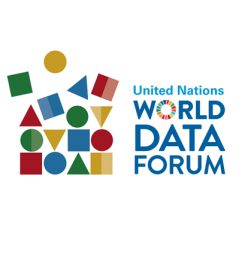Effective capacity building and technical assistance in a world of data: How to say no and better coordinate technical assistance
22 Oct 2018 02:00h
Event report
The moderator Ms El Iza Mohamedou (Deputy Manager, PARIS21) stressed that technical assistance and capacity building need to adapt to a changing world and changing data needs. She also highlighted that while technical assistance for building statistical capacities is much needed, partner and provider countries need to carefully assess whether a given proposal is feasible in a given country or sub-state context.
Ms Cara Williams (Chief Advisor of International Relations, Statistics Canada) described the systems in place to monitor and evaluate activities as part of Canadian development co-operation. She described three key stages: (a) pre-evaluation takes place before the project and maps a partner country in relation to their development plan; (b) once a longer-term project commences, a governance structure is put in place, including a logical model and implementation plan; and (c) an end of project evaluation, overseen by Global Affairs Canada, looks at development effectiveness after the project. However, Williams stressed that the informal structure is much more important. Those that are recipients or affected in some way need to be asked whether the framework matches their needs. As such, implementation needs to be flexible and nimble. Beyond that, Williams stressed that building partnerships and relationships that last beyond the project duration is crucial.
In a similar spirit, Mr Neil Jackson (Former Chief Statistician, Department for International Development (DFID), UK) stressed that it is crucial to start from the needs of partner countries. He described how, in order to deliver better results and add value, DFID is running consultations with partner organisations on the opportunities for data and the needs of partners. At the same time, Jackson pointed out that new data sources pose a challenge for National Statistical Organisations (NSOs). This means that NSOs need to commit to modernisation in light of these changes. Projects are under way in Ghana, Uganda, and Rwanda, among others, to support the modernisation of NSOs. The key question for the future of technical assistance and capacity building in this area is how to apply this more widely.
Ms Elena Proden (Specialist, Strategic Implementation of the 2030 Agenda Unit, Division for Satellite Analysis, UNITAR) highlighted the work of UNITAR in training and learning as a special type of technical assistance. She described two initiatives: (a) the development of open sources learning and training toolkits for NSOs and related institutions, which is currently in its pilot phase, with the aim of making it available more widely, and (b) a short-term planning tool for NSOs to support planning a multistakeholder context. Proden also talked about the challenges of measuring impact in this area and some of the approaches UNITAR has developed, which include, for example, evaluating the application of knowledge and skills several months later.
Ms Josie Perez (Philippine Statistics Authority) explained that her agency does not have a specific mechanism for requesting technical assistance. Co-operation in this area usually develops from participation in international conferences, meetings, and seminars. Especially in the context of the SDGs, developed countries have been approaching the NSO to offer assistance. Perez highlighted that there is shift in technical assistance towards new technologies, such as geospatial data, and that it often includes access to relevant software.
Ms Ayush Ariunzaya (Chairwoman, Mongolian NSO) explained that the Mongolian NSO reports to parliament and is in that sense more centrally placed than other NSOs. She also pointed out that Mongolia has a national programme for the development of statistics, which is followed across the government. She argued that ideally, statistics units would exist in all ministries and agencies, but that this is not the case. Further, frequent changes in personnel prevent the building of longer term and reliable individual capacities.
Ariunzaya stressed that technical assistance cannot only involve the collection of statistics. Rather, it also has to involve training the statisticians on the ground. Beyond that, the involvement of the whole statistical ecosystem, beyond the NSO, is important.
Mr Qasem Saeed Al Zoubi (Director-General, Department of Statistics, Jordan) argued that coordination between all the national institutions that produce statistics is key and that capacities need to be built across the entire statistical ecosystem. In addition, coordination with donors and international organisations is also crucial. For example, for achieving the SDGs it will be important to coordinate among all the relevant institutions in the country and the relevant NGOs.
Related to that, the panel as a whole agreed that the SDGs present a growing area of need for statistics and data. In this context, better demographic data on the basis on geospatial data will play an important role. Similarly, it is important to realise that technical assistance would not be for a specific SDG indicator, but should address the national statistical system as a whole and ensure sustainability even beyond the SDGs.
Questions from the audience highlighted the challenges faced by NSOs, the need for including vulnerable groups in the assessment (in particular refugees and migrants), effective capacity building beyond training, and local partnerships for capacity building.
Related topics
Related event

